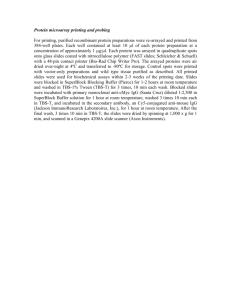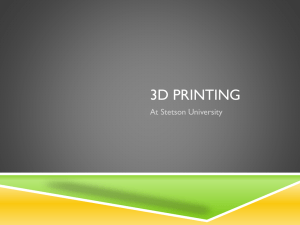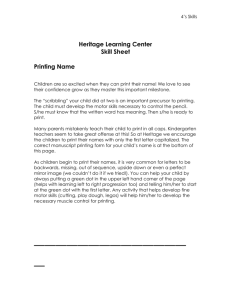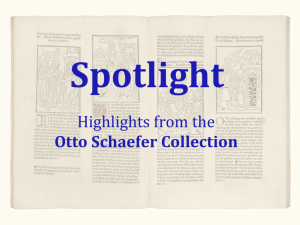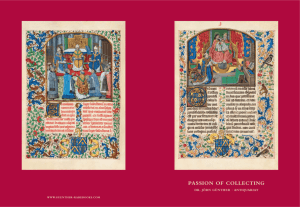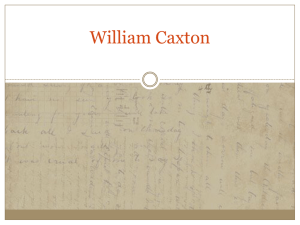Background: Key Points: Artists:
advertisement
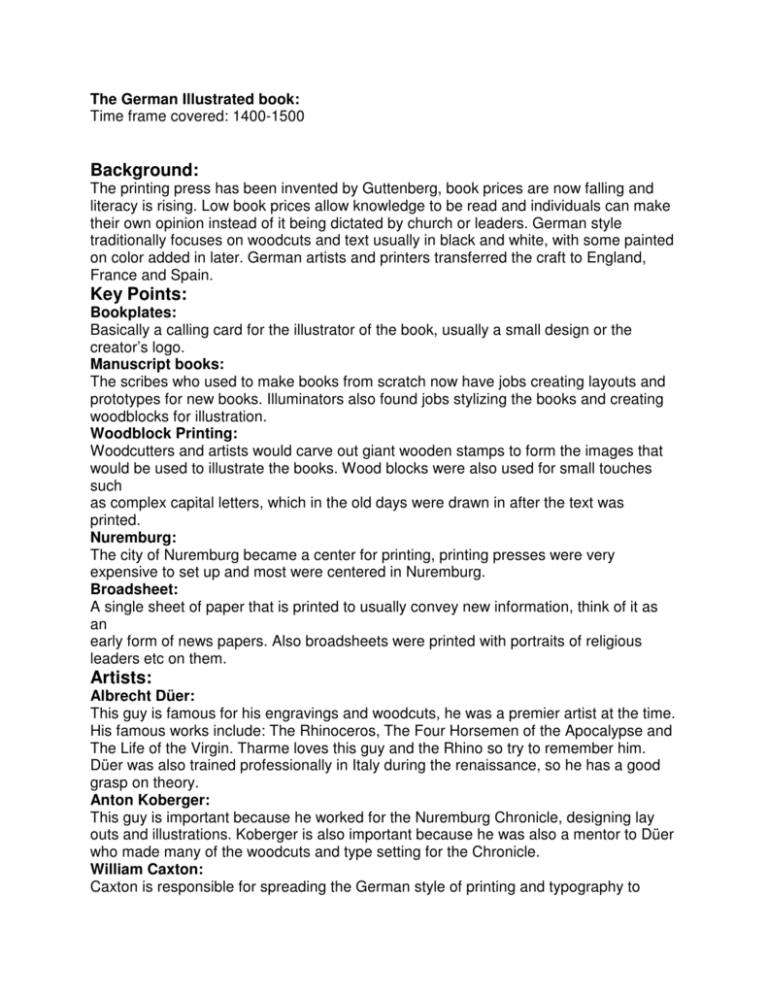
The German Illustrated book: Time frame covered: 1400-1500 Background: The printing press has been invented by Guttenberg, book prices are now falling and literacy is rising. Low book prices allow knowledge to be read and individuals can make their own opinion instead of it being dictated by church or leaders. German style traditionally focuses on woodcuts and text usually in black and white, with some painted on color added in later. German artists and printers transferred the craft to England, France and Spain. Key Points: Bookplates: Basically a calling card for the illustrator of the book, usually a small design or the creator’s logo. Manuscript books: The scribes who used to make books from scratch now have jobs creating layouts and prototypes for new books. Illuminators also found jobs stylizing the books and creating woodblocks for illustration. Woodblock Printing: Woodcutters and artists would carve out giant wooden stamps to form the images that would be used to illustrate the books. Wood blocks were also used for small touches such as complex capital letters, which in the old days were drawn in after the text was printed. Nuremburg: The city of Nuremburg became a center for printing, printing presses were very expensive to set up and most were centered in Nuremburg. Broadsheet: A single sheet of paper that is printed to usually convey new information, think of it as an early form of news papers. Also broadsheets were printed with portraits of religious leaders etc on them. Artists: Albrecht Düer: This guy is famous for his engravings and woodcuts, he was a premier artist at the time. His famous works include: The Rhinoceros, The Four Horsemen of the Apocalypse and The Life of the Virgin. Tharme loves this guy and the Rhino so try to remember him. Düer was also trained professionally in Italy during the renaissance, so he has a good grasp on theory. Anton Koberger: This guy is important because he worked for the Nuremburg Chronicle, designing lay outs and illustrations. Koberger is also important because he was also a mentor to Düer who made many of the woodcuts and type setting for the Chronicle. William Caxton: Caxton is responsible for spreading the German style of printing and typography to Britain. He translated the first printed book into English, Recuyell of the Histories of Troy, also he was the first to print a book in England, The Game Playe of Cheese. German Style: German style of this time focused on Gothic text, complex woodcut illustrations, which primarly were in black and white. Color sometimes was added as highlights after the printing of the book. The German style also had very complex
